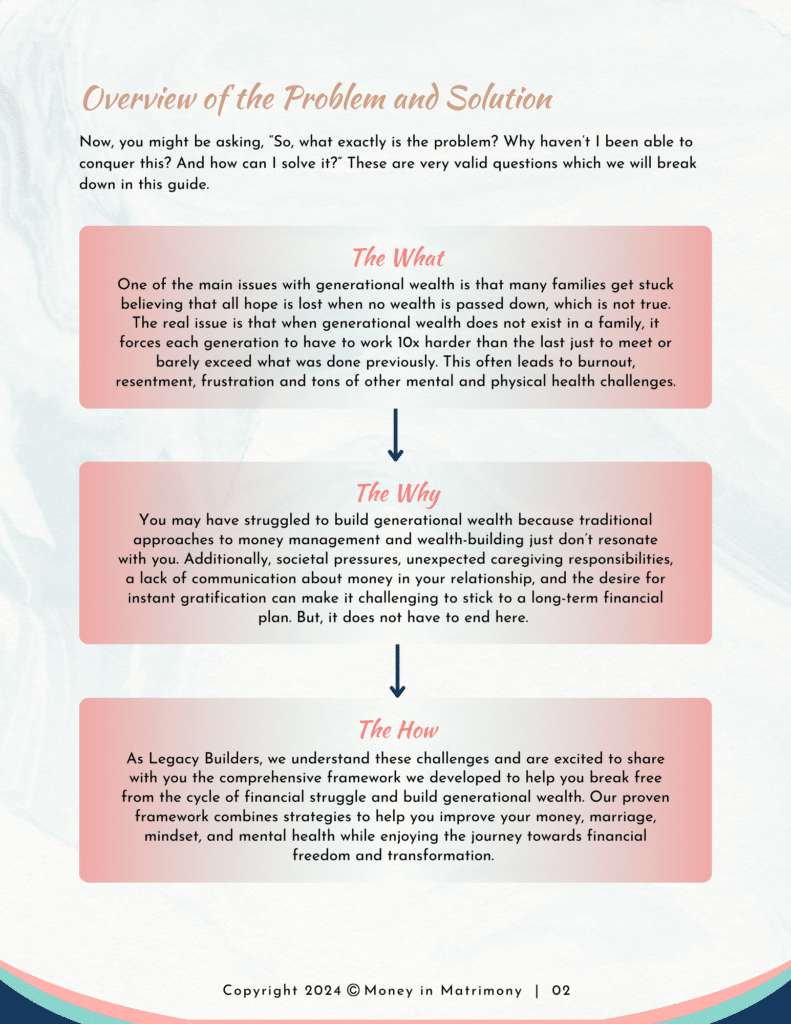10 Signs that Your Spouse is Hiding Money and How to Manage it
This post may contain affiliate links which means that I will receive a small commission for purchases made through those links, at no cost to you.

Do you believe that your spouse is hiding money? If so, then keep reading for 10 signs that your spouse is hiding money and how to manage it.
What is Financial Infidelity?
Financial infidelity within a marriage occurs when there is dishonesty between you or your spouse about money. Sometimes financial infidelity occurs because one spouse is trying to cover up a deeper issue, such as fear or lack of trust of the opposite spouse. This can happen with either debt or savings.
According to a survey by The National Endowment for Financial Education (NEFE), financial infidelity is certainly a huge issue. The results show that 41% of American adults who combine finances with a partner or spouse, admit to committing financial deceptions against their loved one. The survey also finds that 75% of adults say financial deceit has affected their relationships in some way.
10 Ways to Identify if Your Spouse is Hiding Money
There are several tell-tell signs that will indicate whether or not your spouse is being dishonest with you about money. Some are more obvious than others. Below, I have listed 10 ways to identify if your spouse is hiding money.
1. Becomes Defensive or Shuts Down
2. Intercepts Mail
3. Withdraws Large Amounts of Cash
4. Maintains Total Control Over Finances
5. Makes Excessive Purchases of “Stuff” for You
6. Makes Excessive Purchases of “Stuff” for Themselves
7. Never has Any Money
8. Has a Financially Addictive Hobby
9. Changed Account Ownership
10. Receives Several Decreases in Income

Signs
Please note that each person is different and some people may hide these money secrets better than others. Let’s take a deep dive into the list above. This list will be helpful when trying to get to the root for the problem. Your spouse may be committing financial infidelity if he/she does any of the following:
1. Becomes Defensive or Shuts Down
If your spouse becomes defensive or immediately shuts down every time money is discussed, he/she might be keeping some money secrets. It’s okay to be frustrated about money, but not every single time there’s a discussion. You and your spouse should be able to have a civilized conversation about your finances at any given time without anyone getting heated.
2. Intercepts Mail
Now, I’m fully aware that we are truly living in a digital age and many people are having their bills or statements electronically delivered. However; your mailbox should at least be filled with some random junk mail! If your spouse is adamant about beating you to the mailbox every day and you haven’t checked the mailbox in months or even touched any mail with your own hands, then you may have a problem. There is no reason that only one spouse should be checking the mail if the other spouse is willing and able to check it.
3. Withdraws Large Amounts of Cash
There is no way to stay on top of the monthly budget if large sums of cash are being withdrawn frequently. Furthermore, if there really is some sort of emergency, both partners should have full disclosure of all details surrounding the emergency. If this is not the case, then your spouse might be hiding something.
4. Maintains Total Control Over Finances
A few weeks ago, I published a blog post entitled, 4 of the Best Reasons Married Couples Should Share Finances. If you haven’t had a chance to read it, take a few minutes after you finish reading this post to do so. There is a section in which I explain why it is not a good idea to allow one person to maintain 100% of the finances.
In the event of an untimely death or illness of the controlling spouse, will you know how to pick up all of the pieces? Will you know which bills need to be paid and when? Or will you fall apart because you were clueless about your household finances?
This method of maintaining finances is a breeding ground for financial infidelity. If you have no say in regards to the financial decisions being made in your own household, then there is no way you will know if your spouse is being honest.

5. Makes Excessive Purchases of “Stuff” for You
It’s not a holiday or your birthday and neither you or your spouse have received any bonuses at work. I’m sure your spouse loves you dearly! But why come home on a random day with a $1,500 pair of shoes and jewelry to give to you? Take a guess! Yep, you are spot on! Your spouse might be hiding their money issues from you. He/she might be wooing you with gifts so that you fail to recognize the bigger issue at hand.
6. Makes Excessive Purchases of “Stuff” for Themselves
You’ve already received your gifts. Now it’s time for your spouse to treat themselves, except it’s really not a treat, it’s a reflection of their ever-growing struggle with money. The purpose of buying gifts for you may have been so that your spouse feels less guilty about splurging on him/herself. If you notice a trend in this type of behavior, then it certainly warrants a conversation.
7. Never has Money
This could be a sign that is both good and bad. Here is why I say this. Sometimes it might not be that your spouse is spending money. It might be that your spouse is actually hoarding money or depositing cash into a hidden savings account. There is definitely an underlying issue here which could possibly be due to your spouse having fear of losing money, which would somewhat justify why he/she feels it’s appropriate to hoard it. On the flip side, your spouse might be broke because he/she is spending money on other things which I discuss below.
8. Has a Financially Addictive Habit
An addiction can be one of the more obvious signs that your spouse has been dishonest with you about money. Some of the most common forms of addiction might include gambling, drugs, alcohol, and smoking. Some of the less common forms of addiction might include food or excessive shopping. No matter what type of addiction it is, all of the items above have the potential to drain your bank account.
9. Changed Account Ownership
Pay attention to any alerts or notifications that might indicate that you have been removed from a joint account or joint credit card by your spouse. If you’ve been added as an authorized user and all of a sudden you have no access to the account, contact the bank or credit card company to find out what happened.
10. Receives Several Decreases in Income
Many times, in the workforce, we are forewarned about unfortunate decreases in salary. However; in some cases, workers were not afforded this luxury. This shouldn’t be something that is re-occurring within your household. Your spouse could be telling you this so that he/she can use the money they are hiding to do other things with. Ask questions and determine whether or not the responses make sense.
Examples
I hope that the signs provided above are persuasive enough to make you start paying more attention to your household finances. However; if they are not, then below I have listed a few examples of what the end results of financial infidelity can look like if not detected early. These are all real-life examples that I found while researching. Names have been changed to protect true identities.
Extreme Examples:
- Steve used several hundred thousand dollars from the sale of he and his wife’s home to invest in the stock market until there was only $52 left in the savings account.
- Jack saved and hid $100K from his wife, while they didn’t have adequate furniture or beds to sleep on in the family house.
- Donte withdrew $25K from his 401K to start a business that flopped without telling his wife.
Common Examples:
- Lisa purchased a pair of shoes and some clothes, tossed the receipts, removed the tags, threw the packaging away and hid the items in the back of the closet.
- Andrea had $1,500 per paycheck allocated to a separate savings account that her husband didn’t know about.
- Sheila opened a separate credit card in just her name and is now in $16,000 worth of debt, but had never informed her husband it.

How to Overcome
I’m going to throw a bonus in here because there’s no sense in helping you identify the signs of financial infidelity if I don’t provide you with a solution to fix it. In order to overcome financial infidelity, I’ve listed 5 actions you must take immediately. There will never be any healing if you both don’t sit down to discuss the issue. These 5 action steps will help you to begin the process of moving forward.
1. Forgive
This one should be simple, but for many, I know it’s not. I believe there’s one reason why we all need to practice this and practice it often. I’ll sum it up in this quote, “Forgive, because none of us are perfect.” That’s it! Since we are not perfect, we must be willing to forgive our spouses for their mistakes.
2. Find the Root Cause
Now that there has been dishonesty discovered, there has to be an open line of communication. Each spouse has to be willing to have an honest conversation about the issue at hand. The purpose is to get to the root cause of the problem. The problem is not that your spouse was dishonest with you about money, but that there is some underlying issue that led to your spouse committing financial infidelity in the first place.
3. Show Support
Even though you might be angry with your spouse for what they have done, it’s never good to play the blame game. It’s okay to let your spouse know that you are frustrated, but still be as supportive as possible. Let him/her know that you are willing to do whatever it takes so that you both can get through this together.
4. review the Budget
Now, more than ever, both spouses should be setting aside time every month to review the budget. Discuss any changes in income, expenses and any other variables that may need to occur. These sit-downs don’t always have to be formal. If there are adjustments that need to be made to the budget in between these discussions, then, by all means, talk about it and come up with a plan.
5. Seek Counseling
If all else fails, and you and your spouse or at odds with each other, then please seek counseling. Only you and your spouse know the dynamics of your marriage. Sometimes it’s better to have a mediator point you in the right direction. Appropriate professionals might consist of financial therapists, marriage counselors, pastors, etc.
Final Thoughts
I once heard a personal finance expert say that “A double life equals a troubled life.” This is so true, especially in regards to financial infidelity. No one should expect to succeed in a marriage if there is dishonesty, especially regarding money. If you notice the signs, have a conversation with your spouse about it. The faster you figure out the signs, will be the faster you and your spouse can work to rebuild trust.








